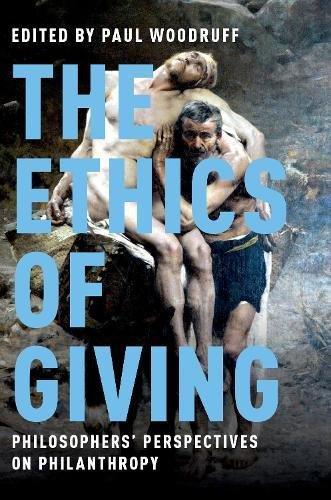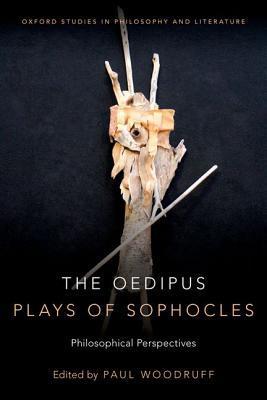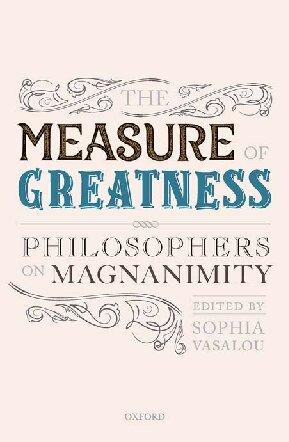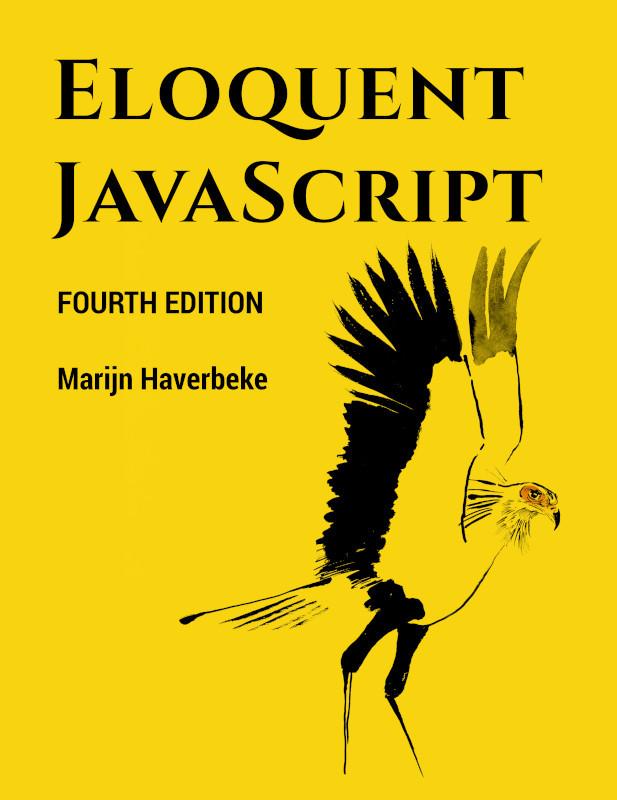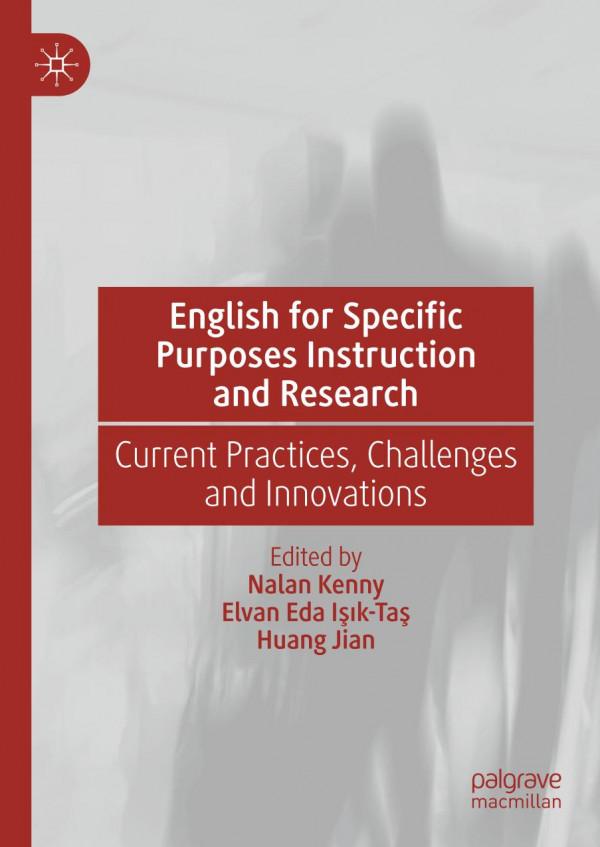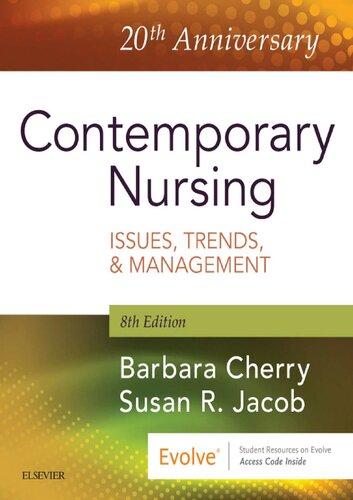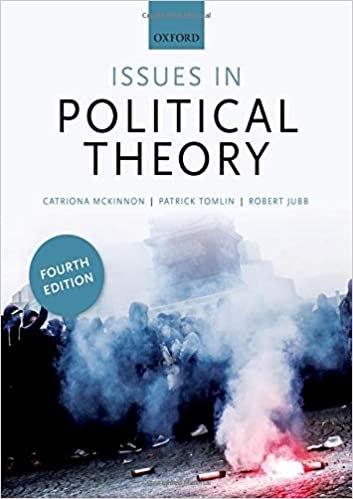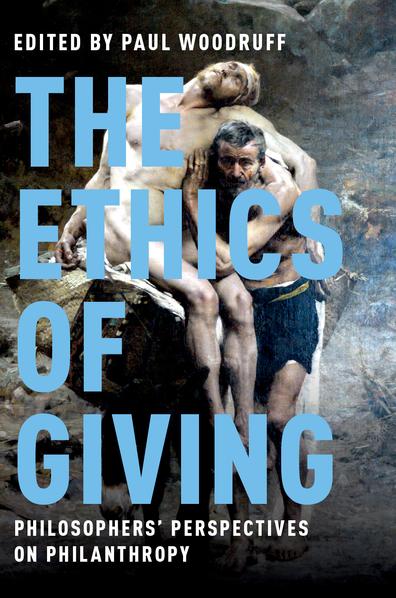THE ETHICS OF GIVING
Philosophers’ Perspectives on Philanthropy
Edited by Paul Woodruff
Oxford University Press is a department of the University of Oxford. It furthers the University’s objective of excellence in research, scholarship, and education by publishing worldwide. Oxford is a registered trade mark of Oxford University Press in the UK and certain other countries.
Published in the United States of America by Oxford University Press 198 Madison Avenue, New York, NY 10016, United States of America.
© Oxford University Press 2018
All rights reserved. No part of this publication may be reproduced, stored in a retrieval system, or transmitted, in any form or by any means, without the prior permission in writing of Oxford University Press, or as expressly permitted by law, by license, or under terms agreed with the appropriate reproduction rights organization. Inquiries concerning reproduction outside the scope of the above should be sent to the Rights Department, Oxford University Press, at the address above.
You must not circulate this work in any other form and you must impose this same condition on any acquirer.
Library of Congress Cataloging-in-Publication Data
Names: Woodruff, Paul, 1943– editor.
Title: The ethics of giving : philosophers’ perspectives on philanthropy / [edited by] Paul Woodruff.
Description: New York : Oxford University Press, 2018. | Includes bibliographical references and index.
Identifiers: LCCN 2017041322 | ISBN 9780190648879 (hardback) | ISBN 9780190648893 (epub)
Subjects: LCSH: Charities—Philosophy. | Humanitarianism—Philosophy. Classification: LCC HV25 .E85 2018 | DDC 174/.43617—dc23 LC record available at https://lccn.loc.gov/2017041322
Printed by Sheridan Books, Inc., United States of America
1. Duties and Choices in Philanthropic Giving: Kantian Perspectives
E. Hill Jr.
2. Virtue Ethics, Thick Concepts, and Paradoxes
Christine Swanton
3.
Jeff McMahan
4.
Elizabeth Ashford
5. Integrity, Identity, and Choosing a Charity 149
Brandon Boesch
6. Giving Isn’t Demanding 178
William MacAskill, Andreas Mogensen, and Toby Ord
7. Afterword: Justice and Charitable Giving 204
Paul Woodruff
ACKNOWLEDGMENTS
These papers were written for this volume; most of them were presented at a conference convened by John Deigh, Jonathan Dancy, and Paul Woodruff. The conference was supported by the Royal Professorship in Ethics and American Society and also by the Once Upon a Time Foundation, which is devoted to promoting discussion about philanthropy. We are all grateful to Geoffrey Raynor, who founded a program of university courses called The Philanthropy Lab, which gave rise to the discussions that led to this project, and who also funds the Once Upon a Time Foundation.
I am grateful to John Deigh and Jonathan Dancy for advice and editorial suggestions. Anonymous readers for Oxford University Press have been helpful as well. My largest debt is to my assistant editor, J. Drake, who helped with format and judgments about content.
LIST OF CONTRIBUTORS
Elizabeth Ashford is a senior lecturer in philosophy at the University of St. Andrews. She works in moral and political philosophy and is currently completing a book, Hunger’s Unwitting Executioners: Severe Poverty as a Structural Human Rights Violation, under contract with Oxford University Press.
Brandon Boesch is a PhD candidate in philosophy at the University of South Carolina. Aside from work in applied ethics, he has also published articles on the topic of representation in science.
Thomas E. Hill Jr. is Kenan professor at the University of North Carolina at Chapel Hill. He is the author of Virtue, Rules, and Justice: Kantian Aspirations (Oxford University Press, 2012) and Human Welfare and Moral Worth: Kantian Perspectives (Oxford University Press, 2002) and the editor of A Blackwell Guide to Kant’s Ethics (Wiley-Blackwell, 2009).
William MacAskill is an associate professor of philosophy at the University of Oxford. He is the author of Doing Good Better (Penguin Random House, 2015).
Jeff McMahan is White’s Professor of Moral Philosophy at the University of Oxford. He is the author of The Ethics of Killing: Problems at the Margins of Life (Oxford University Press, 2002) and Killing in War (Oxford University Press, 2009).
Andreas Mogensen is a tutorial fellow at Jesus College and an associate professor of philosophy at Oxford University. He has published articles on moral epistemology, especially on evolutionary debunking arguments.
Toby Ord is a research fellow at the Future of Humanity Institute at Oxford University. He has published on topics including global poverty and moral uncertainty.
Christine Swanton is at the Philosophy Department of the University of Auckland. She is the author of The Virtue Ethics of Hume and Nietzsche (Wiley Blackwell, 2015) and Virtue Ethics: A Pluralistic View (Oxford University Press, 2003). Recent and forthcoming work include papers on virtue ethics and role ethics, and virtue ethics and particularism.
Paul Woodruff is Darrel K. Royal Professor of Ethics and American Society at the University of Texas at Austin. He is the author of Reverence: Renewing a Forgotten Virtue (2d edition, Oxford University Press, 2014) and The Ajax Dilemma: Justice and Fairness in Rewards (Oxford University Press, 2011).
Introduction
PAUL WOODRUFF
Philanthropy can be a matter of life and death, for both people and institutions. Some human lives depend on philanthropy, and so does the quality of life for many others. Philanthropy is especially important to us who teach at institutions supported by donations; we depend on those who raise money to support, among other things, philosophy. Yet few of us have dealt directly with hard questions about the subject.
Philosophy matters more for philanthropy than for most subjects in ethics, because differences in theory point to different philanthropic practices. Consequentialism, for example, calls us to give where our giving can do the most good, generally in terms of lives saved or health restored; for us in the first world, this means giving to people who are far away from us. Virtue ethics, if situated in social practices, may call for a more localized approach to giving. And if justice requires the wealthy to return wealth to those who should, in justice, have had it in the first place (as Kant suggests), then justice asks the wealthy to determine who are the rightful owners of their wealth. Justice may also require us to guarantee human rights, including the rights that are violated by systemic poverty.
In editing this volume, we have been looking for a variety of theoretical approaches to ethics that answer such questions as these:
Why should one give? What is it that wealthy tightwads do not understand? Is generosity a virtue? Do we have duties to give? If we do, then clearly we will be in the wrong if we do not give. And a question follows: Are philanthropic duties narrow or wide? If narrow, these duties would be specific to particular causes and perhaps would require us to give specified amounts. How are the causes and amounts to be determined? But perhaps philanthropy is supererogatory—a good deed beyond the call of duty, earning merit when done, but not blame when left undone. What is the connection between philanthropy and altruism: can one be a selfish or self-interested philanthropist? How should philanthropists weigh the values of various causes, such as religion, the arts, education, human rights, animal rights, and saving lives from hunger or disease? Is it wrong to give money to the arts when that money could have saved lives?
This volume contains essays by prominent philosophers, most of whom are new to the subject. Our aim has been to attract new minds and voices to a philosophical discussion of philanthropy. Virtue ethics and Kantian ethics are represented here, in addition to more familiar consequentialist approaches.
On philanthropy, more than on most other subjects in ethics, recent philosophers have theories that diverge widely from common practices. Most people who are thought to be living ethical lives seem to give very little to philanthropic causes, and what they do give is rarely as effective as it could be. Few people do the most good they can by way of philanthropy. Yet most of us share the intuition that we should save a drowning child if we come across one and
can do so with little risk or loss to ourselves, and we agree that a passerby would do wrong to leave the child to drown. But distance makes these intuitions fade. If we hear news of a child drowning on the other side of the world, would we do wrong not to pull out our checkbooks?
Charitable giving in fact often shows a bias toward the local. Is partiality of this kind irrational? Does it represent a moral failure? If so, it is a very widespread failure. Another challenge: local giving often shows a bias toward religion, education, and the arts; admirable though these causes may be, they do little to alleviate human suffering compared with causes that save children from starvation or the ravages of malaria.
Most moral theories explain common moral intuitions to some extent. Kant assumes that his readers agree about such issues as false promising and then shows how his theory can provide grounds for such agreement. In the case of philanthropy, some recent philosophers have taken a different role. Instead of grounding principles that lie behind what is generally considered ethical giving, they have argued for a kind of giving that is different from the norm, to which the name “effective altruism” has been given. Effective altruism calls for contributions to causes that can be shown, quantitatively, to do the most good. Its prime advocate is Peter Singer; Will MacAskill, whose work appears in this volume, has also written eloquently in its favor.
One need not be a consequentialist to advocate effective altruism, although the principal spokespeople for the movement have been consequentialists. Elizabeth Ashford, also in this volume, has offered a justice-based argument that supports effective altruism. Kantians and virtue ethicists could come to similar conclusions. But theories differ over whether it is wrong to choose a lesser good: If I can do the most good by donating to Oxfam, but I choose instead to
effect a lesser good by giving to the local library, have I done wrong? Strong act utilitarians will be inclined to say that I have, but ethicists from other schools of thought will not agree. Jeff McMahan in this volume shows that, when it is not wrong to give nothing, it does not appear to be wrong to give toward a lesser good. Thomas Hill shows why a Kantian would approve of gifts to the arts and education, and Brandon Boesch argues for a concept of integrity that competes with utilitarian considerations. Christine Swanton’s theory of virtue opens new, nonutilitarian ways of thinking about such matters. I have added my own thoughts on justice as an afterword.
Here I offer brief summaries of the chapters.
1. Thomas E. Hill Jr., “Duties and Choices in Philanthropic Giving: Kantian Perspectives.” Philosophers before Hill have done little to explore the implications of Kant’s theory for philanthropy. Hill has a distinguished record as an interpreter of Kant and also as a philosopher who, in his own right, applies Kantian method to ethical issues not directly addressed by Kant. The principal method is that of systematic moral legislation on a rational basis. Applying this to the human situation, Kantians propose principles that aspire to be worthy of agreement by reason-governed human beings.
Philanthropy fulfills a duty that is wide or imperfect, in Kant’s vocabulary—meaning that it is not specific about how, when, and how much to help others. But it falls under a strict duty to make the happiness of others an end of our own. That is, moral law requires us to be philanthropic but leaves us some latitude as to how to do this. It does not require us to be impartial with regard to family, friends, or neighbors. The principle of beneficence as Hill understands it is not a decision procedure for all cases and does not determine in every case an action one should take. It is, after all, one principle in a system of moral legislation; other principles, which may be more demanding, will probably apply to a case in question. For example, a
principle of mutual aid (such as that of Rawls) is essentially Kantian and is more determinate than the duty of beneficence.
In responding to objections Hill explains why Kant prescribes a duty to will the happiness of others but not of oneself. We all already will our own happiness, Kant argues, and so it makes no sense to introduce an imperative for this. He also shows how Kantian ethics can accommodate our intuitions about supererogation—going beyond one’s duty. Any act of beneficence indirectly fulfills our strict duty to make the happiness of others our end. There are many ways for an act of beneficence to have moral value under this duty, and some—the more demanding ones—belong to saints or heroes.
Hill concludes by addressing three difficulties. First, justice. In some cases the possession of wealth represents an injustice (Kant notes) that a government has failed to correct. Then the wealthy have a determinate duty of reparation. This is a matter of justice, not philanthropy. Second, priorities. Kantian morality, as Hill interprets it, requires that we give to worthy causes but gives no precise guidelines for what is worthy. Meeting the basic needs of others is worthy, but so is supporting education and the arts, which are important in Kant’s larger conception of human dignity. Third is the problem of motive. Kant seems at times to argue that giving out of sympathy has no moral worth, but Hill shows why this is an oversimplification. Kant allows that sympathetic feelings have some value from a moral point of view.
2. Christine Swanton, “Virtue Ethics, Thick Concepts, and Paradoxes of Beneficence.” Swanton introduces a theory that will be new to most readers of this volume: thick concept centralism (TCC), a species of virtue ethics. Thick concepts include loyalty, affability, love, and fairness. Thin concepts, such as right and wrong, are at best secondary to the thick concepts when they are exhibited virtuously. When is an act of loyalty virtuous? On Swanton’s view
it is when the act hits the target of virtue—what Aristotle calls the mean. Swanton does not accept the agent-centered view that an act is virtuous when characteristic of a virtuous agent.
Her general thesis is that such a theory can resolve certain paradoxes of philanthropy. These paradoxes have arisen within what she calls the welfarist consequentialist tradition. This is the tradition which, setting virtues to one side, insists that morality consists in the promotion of the good, understood in terms of welfare. This tradition, which she opposes, depends on the use of thin moral concepts, such as right and wrong, and therefore stops at what she calls the simple thought that it’s never right to prefer a worse state of affairs to a better.
Swanton’s approach emphasizes the way in which we are situated with other people. We “have a need for bonding with others.” We need to nurture the qualities on which communities depend, and these qualities include caring about individuals, groups, and projects that are special to us.
Using this theory Swanton shows how one can respond to a number of paradoxes: (1) Why does philanthropy seem overly demanding? Because people cling to the simple thought and do not temper it with respect for personal bonds. (2) Why does supererogation—going beyond one’s duty—seem paradoxical? That is because we forget that a duty of virtue may be understood as “calibrated according to the nature and development of the agent.” Saints and heroes go beyond duties calibrated in that way. (3) What are philanthropists to do when reason does not determine a course of action? Which charity to support? And by how much? Here she introduces the concept of narrative virtue: within a narrative context, one can be influenced virtuously by factors, such as bonds of love and loyalty, that are independent of optimizing welfare. (4) Why should I give if my gift literally makes no difference? In such
a case it seems that I have no fair share to give, because even if I give, I have no share in the result. Swanton’s answer is complex: failing to act in a “making no difference” case might be virtuous or vicious. To see the difference, we need to use thick concepts, and specifically to treat fairness as thick.
This is rich and productive theory. The layperson may find it harder than welfarism to understand but, at the same time, will recognize its results as more in line with everyday thinking about philanthropy.
3. Jeff McMahan, “Doing Good and Doing the Best.” As a proponent of effective altruism, McMahan is disappointed with the result of his argument: when giving is supererogatory—that is, when it is not wrong not to give—he finds that it is not wrong to give ineffectively. So he challenges effective altruists to show “that much less of doing good is supererogatory than we have hitherto imagined.” If Leona Helmsley would not do wrong in giving nothing for human welfare, then she does not do wrong in giving to the welfare of dogs in preference to human beings. McMahan looks closely at several proposed counterexamples to this result and draws a series of subtle but telling distinctions. We do find cases in which it appears wrong to do a lesser good, but those are cases in which one would incur no added cost in doing the greater good.
Leona Helmsley has an interest in the welfare of dogs that she would have to sacrifice if she diverted her legacy to human welfare. Sacrificing such an interest adds to the cost for her of doing something that (we have agreed at the outset) she is not obliged to do at all: philanthropy. The Helmsley case is extreme, but many of us have interests we support with charitable giving—such as in the arts or in education—knowing that we could do more measurable good if we gave more effectively. Are we doing wrong by giving to the arts?
McMahan’s defense of Helmsley’s choice hangs on his assumption, stated at the outset, that the funds in question are hers to give, both legally and morally. If they were hers legally but not morally, then she would have a moral obligation to give them where they morally belong; doing so is not supererogatory. Giving is supererogatory only with funds that are morally yours. McMahan brings us to the conclusion that we need to examine more closely the extent to which giving is supererogatory.
4. Elizabeth Ashford, “Severe Poverty as an Unjust Emergency.” This essay is a major contribution to the debate over effective altruism—to the question whether it is better to correct structural injustice or to make up for its effects through individual donations. The effect of injustice between the first and third worlds has been severe poverty: the inability to afford a minimally nutritious diet along with other requirements for survival.
The issue is what are the duties of affluent agents—those who can afford to help those in severe poverty without jeopardizing their own or their dependents’ interests. Effective altruists have been put on the defensive by advocates for correcting injustice. Ashford shows that the two sides should not be arguing as if there were competition between them. Effective altruism turns out to be an obligation of justice. Affluent agents have two kinds of duty arising from severe poverty: a duty to correct injustice and a backup duty to respond to severe poverty as an emergency. She uses Henry Shue’s tripartite analysis of human rights to show that these duties are not only compatible but necessarily linked: “Affluent agents’ duties to donate to NGOs should be understood as backup duties, which arise because the primary duties imposed by the human right to subsistence have been violated.”
Ashford’s chapter includes a thorough review of theoretical and practical objections to effective altruism, along with persuasive
replies. Effective altruism as an emergency backup does not supplant or undermine other necessary interventions. The argument is too complex to summarize here; this is a major contribution to the subject and should be widely read.
5. Brandon Boesch, “Integrity, Identity, and Choosing a Charity.” Boesch aims to show that there are good, nonarbitrary, nonutilitarian considerations that bear on selecting charities. He builds on a famous argument from Bernard Williams to the effect that personal integrity can count against utilitarian reasoning—as it does if I am called upon to prevent harm by violating a value to which I have committed my life. Boesch fleshes out the required notion of integrity through a theory of identity. On his view, an identity is something one chooses through action rather than a label one claims for oneself. To have an identity is to choose consistently to act on—or at least to take seriously—a certain set of reasons. Having an identity, he then suggests, is a way of instantiating a virtue.
On the theory he develops, you violate your identity only when you fail to take the relevant reasons into consideration. You might identify yourself with the cause of human rights but still give the lion’s share of your donations to other causes, so long as you consider seriously the commitments that flow from your identification with rights. Charitable giving is especially important to questions of identity because often the only way busy people can express their ethical commitments is through giving. This factor has generally been overlooked in philosophical writing about philanthropy. It is not arbitrary for us to express ethical commitments or solidarity with minority causes by writing checks; there are sound ethical reasons for making gifts, whether or not they are effective. In the end, in an amusing but valuable coda, Boesch points out that certain strategies for fundraising (such as the famous ice bucket campaign) are challenges to integrity.
Boesch’s chapter was presented to us through a nationwide contest for graduate students on the subject of philanthropy. We chose it because it was a well-argued and original essay on a topic in philanthropy that has otherwise been neglected.
6. William MacAskill, Andreas Mogensen, and Toby Ord, “Giving Isn’t Demanding.” You might have read to this point in the book and agreed that you have an obligation to give, so long as the obligation is not too demanding. But what is too demanding? Some readers have thought that Peter Singer’s principles of sacrifice were two demanding. MacAskill and his colleagues introduce a very weak principle of sacrifice: 10 percent of income for most members of the rich world’s middle class, to be given (in effect) as effective altruism. This principle, they argue, is not too demanding. They do not argue that this exhausts one’s philanthropic duty.
Their argument is based on research on the effects of wealth on well-being. A small increase for the very poor can improve their well-being far more than a loss in the same amount would reduce the well-being of a donor from the rich world. In other words, the benefits that effective altruism brings are larger, and the costs smaller, than most people believe. This is eye-opening research, and its results need to be widely promulgated. Good-hearted readers, if they take this argument together with Ashford’s, will surely resolve to increase their giving in coming years.
7. “Afterword: Justice and Charitable Giving.” Not all that we count as charitable giving is philanthropic. Some of it is required by considerations of justice. Although some of these considerations point to effective altruism, as Ashford shows, some point in other directions. The wealth and happiness of many of us in the rich world are built on sacrifices that have been forced on others or that others have made. For such reasons we may have obligations of justice that compete with each other, as well as with philanthropic duties.
Philanthropic duties are wide and may be fulfilled in a number of ways. Duties of justice must be narrower; they must be fulfilled toward certain recipients and (in some cases) in certain amounts.
The afterword sketches the range of giving obligations we may have under justice, introduces fair share arguments, and discusses the problem of free-riders who may not wish to ride at all.
My part in this volume is dedicated to the memory of my father, Archibald M. Woodruff Jr. (1912–1984), who gave or left the bulk of his estate to charitable causes. Influenced by his example, and by arguments such as those found in these pages, I regularly give well over 10 percent of my income—although not entirely to the causes deemed most effective by effective altruists. The education that was given to me has made possible the life I have led and the money I have earned, so I have thought it right to give some money back to education—including to the study of philosophy at Oxford, where much of the best recent work on philanthropy has been done. I have also given selectively to the arts, for similar reasons. I find philanthropy a delicate topic, touching as it does on intimate issues of value and individual identity. As Boesch points out, donors’ giving reflects their individual sense of who they are and where their obligations lie. Those who write about this topic should make their money follow their arguments. I have tried to do so.
further re A din G
The literature on the ethics of giving is growing rapidly. Here I list only the most important recent work.
Peter Singer started the current philosophical discussion of philanthropy with his 1972 article “Famine, Affluence, and Morality,” which he followed with The Life You Can Save (2010). He made the case for effective altruism in The Most Good You Can Do (2015). In the same year William MacAskill published Doing Good Better, which carries the case for effective altruism further. A fine recent anthology of work
by philosophers on this subject is Giving Well: The Ethics of Philanthropy (2011), edited by Patricia Illingworth, Thomas Pogge, and Leif Wenar. Judith Lichtenberg seeks a psychological motivation for philanthropy in Distant Strangers: Ethics, Psychology, and Global Poverty (2014). Julie Salamon’s small book deserves a wide audience: Rambam’s Ladder: A Meditation on Generosity and Why It Is Necessary to Give (2003). Karl Zinsmeister has written from a historical perspective about the value of philanthropy in What Comes Next? How Private Givers Can Rescue America in an Era of Political Frustration (2016). Full references to these works are appended to chapter 7 in this volume.

